In this article:
Excessive sweating, also known as hyperhidrosis, results from an overactive sympathetic nervous system, which signals the sweat glands to produce sweat profusely. Hyperhidrosis is most common in the hands, leading to clammy, wet palms.
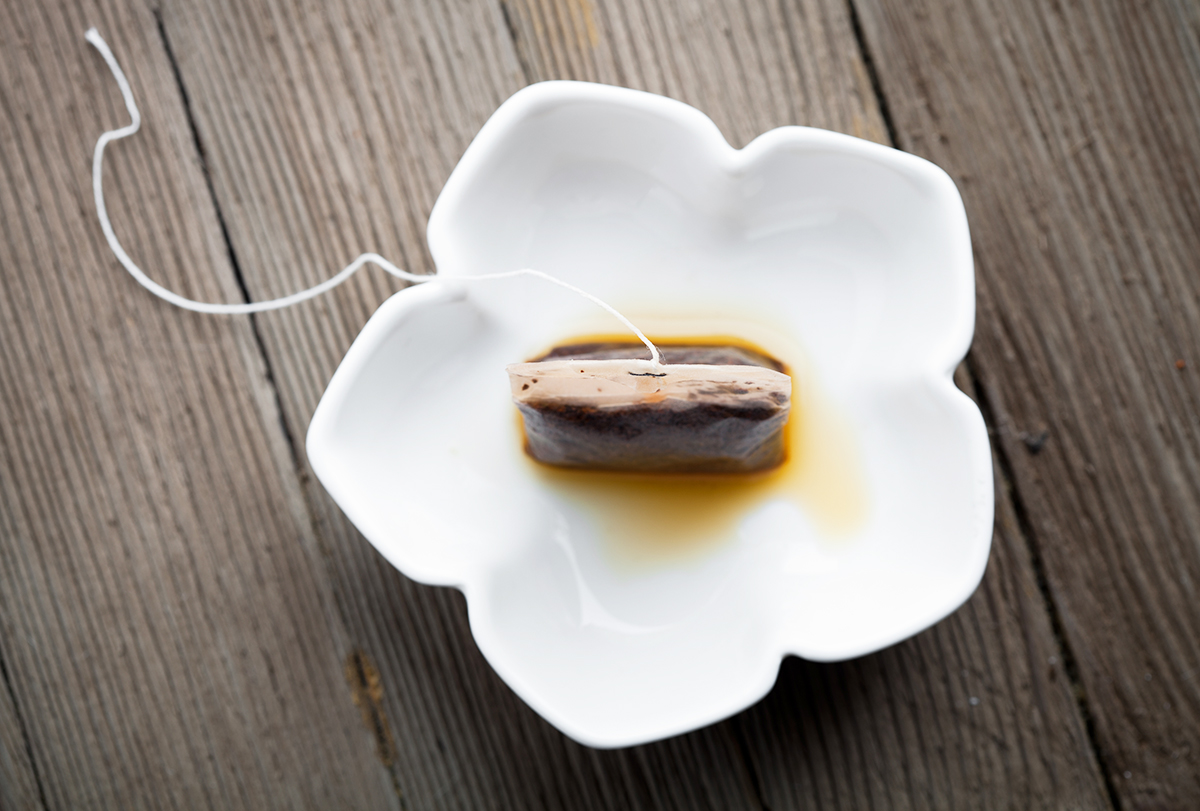
The sweating may be triggered by stress, anxiety, physical exercise, or hot weather. (1) This intermittent perspiration may cause the skin on your hands to turn white and peel with the moisture.
People with hyperhidrosis may develop self-consciousness and feel embarrassed due to the visible sweat. The good thing is there are various self-care measures and at-home treatments that can help control the sweating and prevent it in the first place.
Home Remedies for Sweaty Hands
Various easy, at-home remedies have been suggested to help control the sweating associated with hyperhidrosis. However, there is little or no scientific evidence to support their effectiveness. Since the remedies are generally safe, you may give them a try and see what works for you.
Caution: Make sure to conduct a patch test before trying any topical remedy, and discontinue use if you experience irritation or allergic reactions.
1. Apply moist tea bags
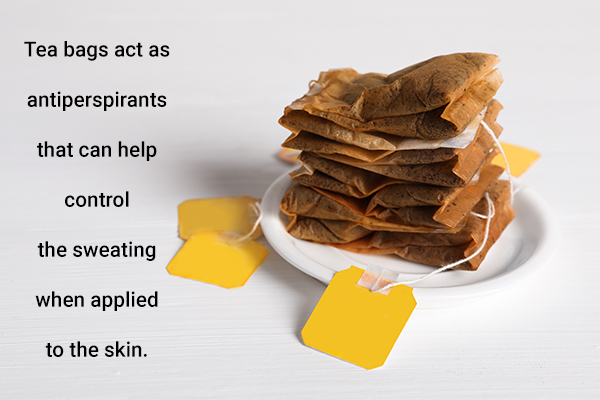
It is suggested that tea bags act as antiperspirants that can help control the sweating when applied to the skin.
How to use:
- Moisten a couple of tea bags and place them over your hands for 5–10 minutes.
- Alternatively, you can soak 3–4 black tea bags in a bowl of hot water and dip your hands in it for up to 30 minutes.
Repeat these remedies daily until you see results.
2. Try green and black tea
While consumption of hot drinks may seem contradictory, black tea and green tea can help control the sweating by acting as astringents. (2)
Green tea is rich in vitamin B and magnesium, which can help shrink the sweat glands. (3) Black tea can help control the growth of odor-causing bacteria. Moreover, the consumption of green tea or black tea may give a sense of calm, therefore preventing hyperhidrosis due to anxiety or stress.
How to use:
- Brew a cup of green tea or black tea and consume it in the morning.
- You can also try rinsing or wiping your hands with cooled-down green or black tea for a few minutes.
3. Use sage leaves
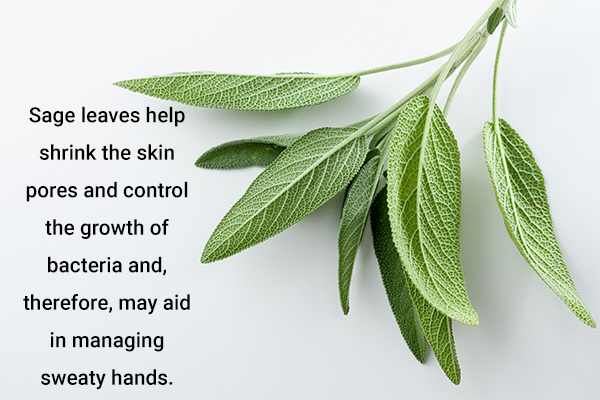
Sage leaves help shrink the skin pores and control the growth of bacteria and, therefore, may aid in managing sweaty hands. (4)
How to use:
- Rub a few drops of sage leaf oil on the palm.
- Consume sage with your food.
- The best way is to dip your hands in a bowl containing soaked sage leaves for about 20 minutes.
Preventive Measures and Self-Care Tips
The following are some self-care measures and lifestyle changes that can help control sweating and prevent it from recurring.
1. Wear suitable clothing
Wear clothing made of natural fibers such as cotton, silk, and wool as they absorb sweat quickly and allow the skin to breathe. Make sure to wear moisture-wicking fibers, especially when exercising.
2. Take a shower daily
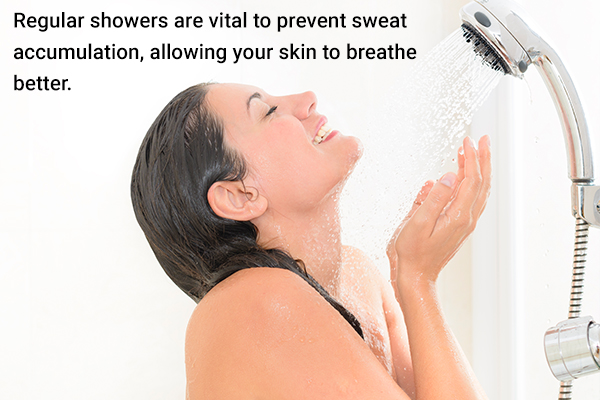
Regular showers are vital to prevent sweat accumulation, allowing your skin to breathe better. However, avoid hot showers or saunas as they can raise the body temperature and trigger sweating.
3. Use an antiperspirant
Wear an over-the-counter antiperspirant containing aluminum-based compounds daily. This product helps prevent visible sweating by blocking the skin pores. (5)
4. Apply absorbent powder
Absorbent powders prevent visible sweat as it absorbs the moisture quickly. These powders also prevent losing your grip due to wet hands. It is suggested to keep baby powder with you at all times and reapply when needed.
5. Consume plenty of water
It is necessary to consume plenty of water throughout the day. Doing so not only balances the water levels that are lost due to sweating but also keeps your body cool, therefore reducing perspiration.
6. Improve your diet
What you consume can largely influence the functioning of your sweat glands. In general, avoid processed and sugary foods, and limit your consumption of spicy foods as they can cause the body to heat up and sweat profusely. Consume foods rich in calcium, which can help cool down your body.
7. Manage stress
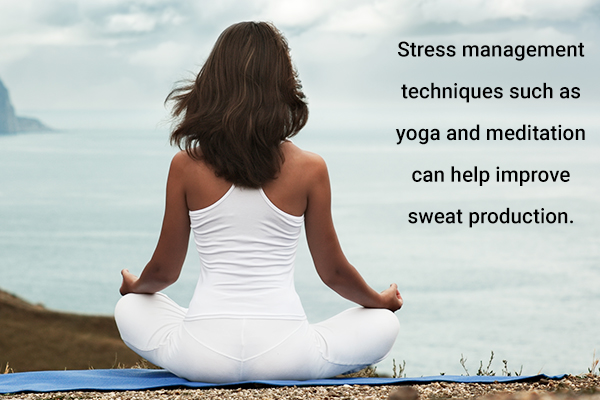
As mentioned before, excessive stress can be a trigger for hyperhidrosis. Therefore, stress management techniques such as yoga and meditation can help improve sweat production.
8. Refrain from caffeine consumption
Caffeine can stimulate the sympathetic nervous system and can put the sweat glands into overdrive. Therefore, avoid drinking caffeine-based drinks.
9. Avoid smoking
The nicotine content of cigarettes can cause a rise in your body temperature and heart rate, (6) in turn overstimulating your sweat glands. Therefore, it is best to avoid smoking.
Most-Asked Questions About Hyperhidrosis
Is hyperhidrosis a permanent condition?
Hyperhidrosis, depending on the type and treatment, can improve and even disappear with time. However, in some cases, it may worsen to affect other parts of the body.
What causes sweat malodor?
Generally, sweat in itself isn’t bad smelling. The malodor arises from the reaction of the sweat with the bacteria on your skin. These bacteria are more prevalent in the armpits, belly button, feet, hair, genitals, and behind the ears than in other parts of the body.
The bacteria feed on the sweat, breaking it down into acids that produce the odor. This body odor is also known as bromhidrosis, ozochrotia, and osmidrosis.
Can deodorants or antiperspirants cause breast cancer?
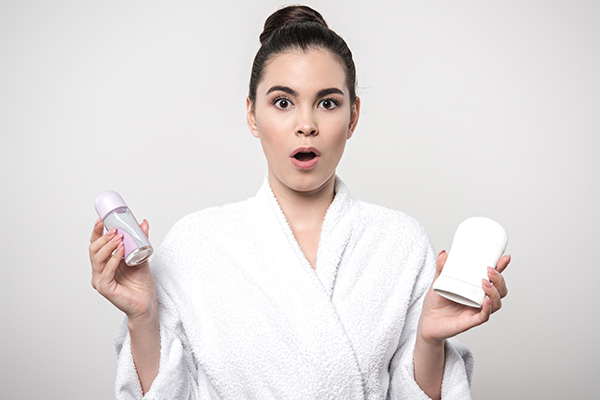
Since antiperspirant and deodorant products are chemically laden, they may be harmful to the skin and underlying organs. A connection between breast cancer and the use of antiperspirants on the underarms has been suggested. However, there is no scientific study that supports this theory.
Final Word
Hyperhidrosis, whether short-term or long-term, can be quite discomforting. While there is no cure to it, various medical and at-home treatments can help in controlling the excessive sweating.
In addition, following some self-care tips and preventive measures can manage the sweating and prevent embarrassment or social anxiety. Make sure to consult your doctor if the condition doesn’t improve with self-care and home remedies.
You can also get in touch with a counselor if your hyperhidrosis gives you anxiety or embarrassment that disrupts your daily life.

- Was this article helpful?
- YES, THANKS!NOT REALLY


